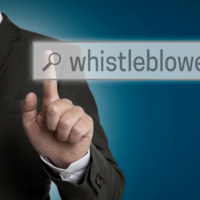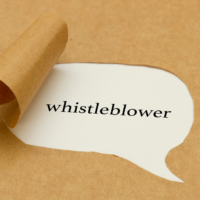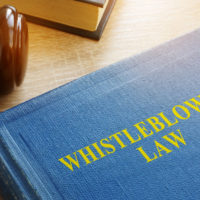Whistleblowing is a courageous act that can bring misconduct and unethical behavior to light. If you are considering blowing the whistle, it is crucial to understand your rights and the steps you can take to protect yourself from retaliation. This guide will provide clear and actionable advice on how to safeguard yourself while doing the right thing. What Are Whistleblower Rights and Protections? Whistleblower protection laws exist to ensure you do not suffer retaliation for reporting illegal or unethical activities.[…] Read More
Category: Whistleblower/Qui Tam Claims
Should I Stay at My Job After Whistleblowing?
Whistleblowing represents a courageous act of transparency and accountability. It involves reporting illegal or unethical activities within an organization. This decision, however, can bring about a complex mix of professional and personal dilemmas. One of the most pressing concerns for whistleblowers is whether to continue working in their current position. This blog explores the factors to consider in making this critical decision and offers guidance on navigating the aftermath of whistleblowing. The Emotional Impact of Whistleblowing Whistleblowing alters your professional landscape[…] Read More
Can You Remain Anonymous as a Whistleblower?
A whistleblower claim occurs when an individual, often an employee, reports misconduct within their organization. These claims can span a wide range of issues, from financial fraud and health and safety violations to breaches of public trust. Here are some fictional examples: Potential whistleblowers often grapple with the fear of retaliation, making anonymity a crucial concern. Can you remain anonymous as a whistleblower? The answer is complex and largely depends on the nature of the allegations, the specific laws involved,[…] Read More
What Is a Qui Tam Lawsuit?
A qui tam lawsuit allows individuals to sue on behalf of the United States to recover money that was fraudulently obtained by a person or corporation. Under the federal False Claims Act, liability is put on the people and companies who defraud the government. Individuals who file qui tam complaints are referred to as “whistleblowers.” Qui tam lawsuits are filed “under seal,” which means they are kept confidential so only the government is aware of the claim. The person or entity[…] Read More
What Is Whistleblower Retaliation?
If you have reported fraud, abuse, or misconduct in your workplace, you may be considered a whistleblower. In New Jersey, it is illegal for an employer to take any adverse action against an employee who reports wrongdoing. This means that if you are retaliated against for whistleblowing, you may be able to file a claim. Whistleblower retaliation can take many forms. Some common examples include: If you are experiencing any of these adverse actions after whistleblowing, you may have a[…] Read More










